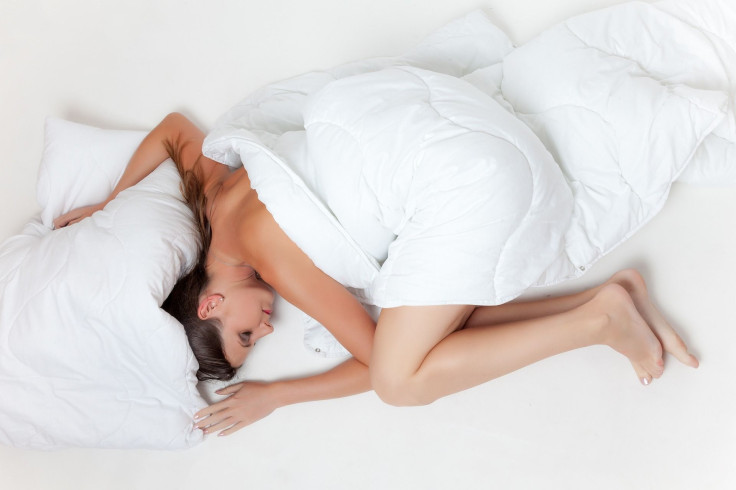Sleep And Caffeine Could Help You Naturally Fight Off Chronic Pain

You probably don’t need a study to tell you that sleep and coffee are practically magical, but the latest research on both provides scientific proof that both have medicinal properties. Researchers at Boston Children’s Hospital and Beth Israel Deaconess Medical Center, also in Boston, found that caffeine and sleeping are more effective at combating pain than medications.
Read:Why Some People Are Addicted To Spicy Food: Masochism, Pain Tolerance, And More
The study, performed on mice, started by gauging typical sleep cycles to establish a baseline on how much each needed and sensory sensitivity. Researchers used a test to measure activity in the brain, electroencephalography, and one to assess muscle and nerve activity, electromyography. Then, to keep the subjects active, researchers provided toys and activities to prevent them from sleeping, sort of like how scrolling Instagram or watching one last episode on Netflix keeps us humans awake past our bedtimes.
"Mice love nesting, so when they started to get sleepy (as seen by their EEG/EMG pattern) we would give them nesting materials like a wipe or cotton ball," says Dr. Alban Latremoliere, PhD and pain expert at Boston Children’s hospital, in a statement. "Rodents also like chewing, so we introduced a lot of activities based around chewing, for example, having to chew through something to get to a cotton ball."
The researchers kept mice awake for up to 12 hours in one night or six hours five nights in a row. Fatigue, stress and pain were tested for during this time. To test sensitivity to pain, scientists exposed mice to heat, cold, pressure or capsaicin, which is found in hot chili peppers, and measured how long it took the animal to flee from the stimuli.
"We found that five consecutive days of moderate sleep deprivation can significantly exacerbate pain sensitivity over time in otherwise healthy mice," says Dr. Chloe Alexandre, PhD, a sleep physiologist at BIDMC.
Analgesics, a common type of pain killer which includes ibuprofen and morphine, did not help the sleepy mice combat pain. Even morphine didn’t prove to be as effective in sleep-deprived mice, meaning patients might have to increase their dose of this addictive drug. The findings also indicated that caffeine could help block this sensitivity to pain. The team believes a better night’s slip along with caffeine used to stay alert during the day might be a safer alternative to analgesic medications.
"Many patients with chronic pain suffer from poor sleep and daytime fatigue, and some pain medications themselves can contribute to these co-morbidities," Dr. Kiran Maski, M.D. at Boston Children's hospital who studies sleep disorders. "This study suggests a novel approach to pain management that would be relatively easy to implement in clinical care."
According to the National Institute of Health, chronic pain plagues about one in four Americans. Relief for the millions who suffer don’t always have to come in pill form as research has found many all-natural remedies.. Dr. Charles Kim, MD and professor at New York University, told Everyday Health that being physically active could greatly enhance people’s lives. "People who exercise and maintain a good aerobic condition will improve most pain conditions," he says. Heat therapy, fish oil and mediation are several other alternatives to popping a pill.
See Also:
Does Your City Sleep In? The Earliest And Latest Start Times For Workers In The United States
Irregular Sleep Patterns Could Make You Less Creative And Attentive



























